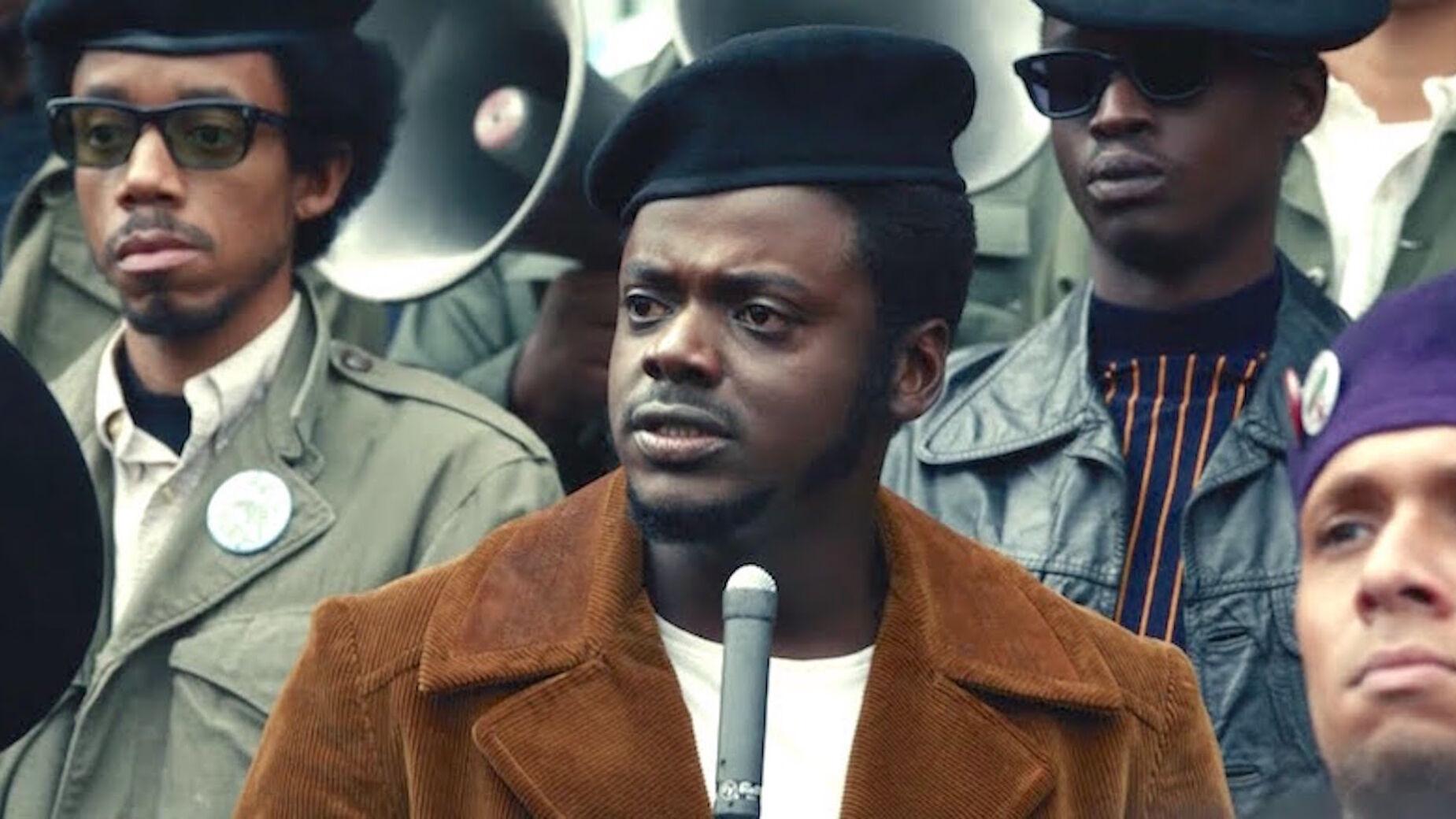Let’s get this out of the way first. “Judas and The Black Messiah” is in no way related to the Biblical accounts of the Gospel, neither is it a heretical device. Rather, it is inspired by true accounts which can be compared to the events leading up to the Crucifixion.
“Judas and The Black Messiah”, the second directorial feature by Shaka King, revisits the civil rights activist movements of the Black Panther Party in the 1960s. Fred Hampton (Daniel Kaluuya), the fiery chairman of the Illinois chapter attempts to form the Rainbow Coalition, a multicultural effort to inhibit infighting and aid in social change in the state of Chicago.
Nevertheless, there is a rat weaving its way through the feet of the big felines. Will this threaten to undo everything that the Panthers fought for? Can the revolution still rise?
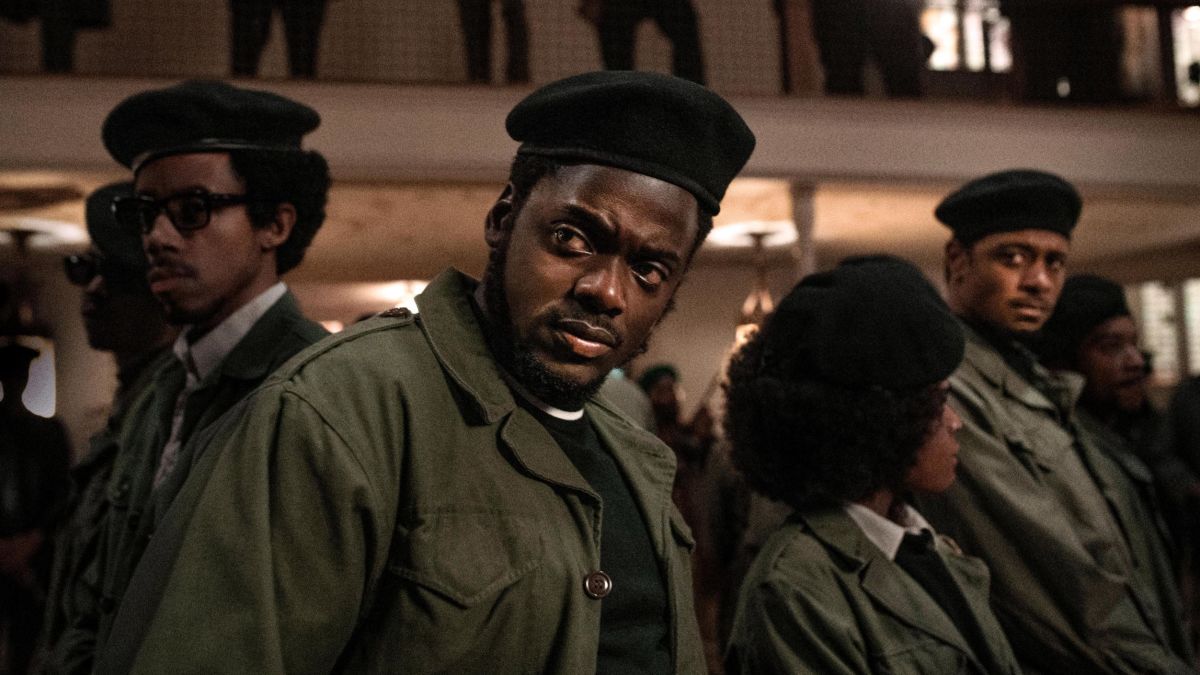
Alright, alright. We know Daniel Kaluuya is great. He’s a phenomenal performer and we’ve seen him grow as an actor in the last decade, pushing forward with his Oscar-nominated performance in “Get Out” and starring in 2018’s “Black Panther”. But oh hell, yes, our man Kaluuya is at his peak in this. Make no mistake, when given the chance, Kaluuya absolutely blows it away with a flame unlike any other.
“I am… a revolutionary. I am…. a revolutionary!” Daniel Kaluuya chants as his loyal apostles cheer him on. In a hair raising scene like this, it’s no wonder Kaluuya has been garnering early Oscar buzz.
Somehow, watching this film harkened back to that “Black Mirror” episode starring Kaluuya, you know, the one in particular with the merit system. Like that character, his burning voice is evident when he needs to be Fred Hampton, “Messiah” to the Afro community. Nevertheless, deep inside, he’s still a soft, loving man, tending to the needs of his people.
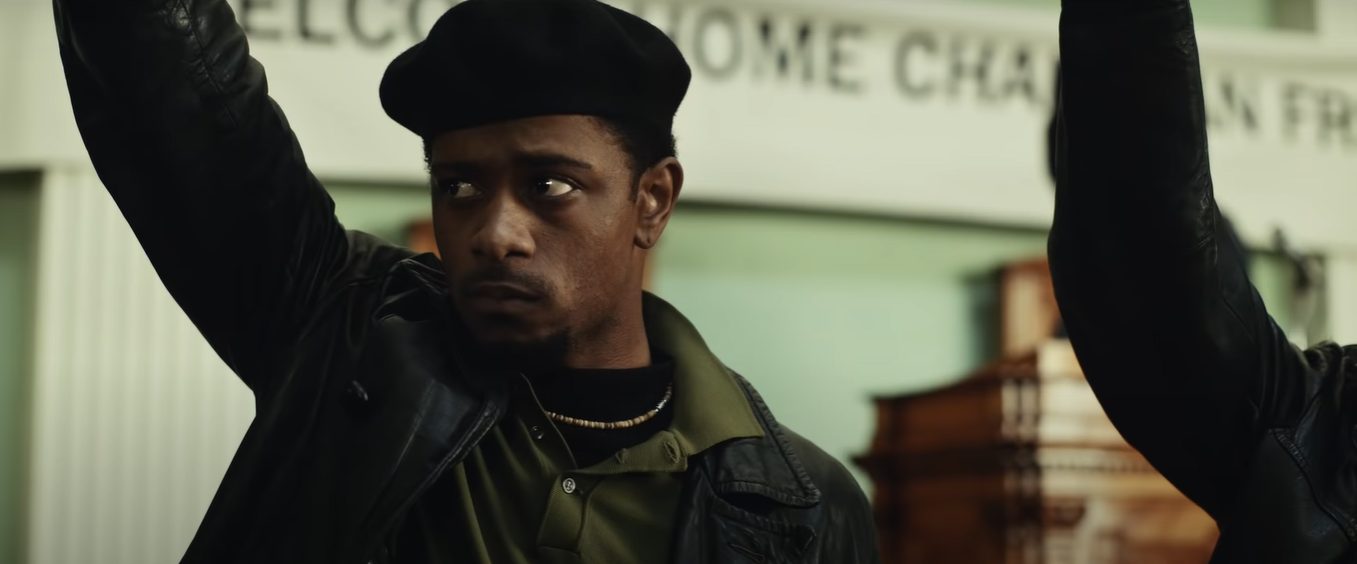
As much as a ton of focus is given to Kaluuya’s Hampton, the tale here is told from the lens of the villain, the Iscariot, the double-dealer played by Kaluuya’s “Get Out” co-star LaKeith Stanfield. Indeed, we’re floored with how Stanfield crafted such depth to his portrayal of O’Neal because, in actuality, there wasn’t much to draw from. All they had was that interview of O’Neal in the PBS documentary, “Eyes on the Prize II” and perhaps a little more. Simply put, the archives were incomplete.
Nevertheless, it is the ambiguity of the persona that gives Stanfield time to marinate in the character, creating his own interpretation of a conflicted man. He is a being with a short-sighted outlook. The selfish ambition he put before his beliefs places him at odds with what he actually holds close to his chest. Cowardice and naivety, the ingredients for a lifetime of guilt.
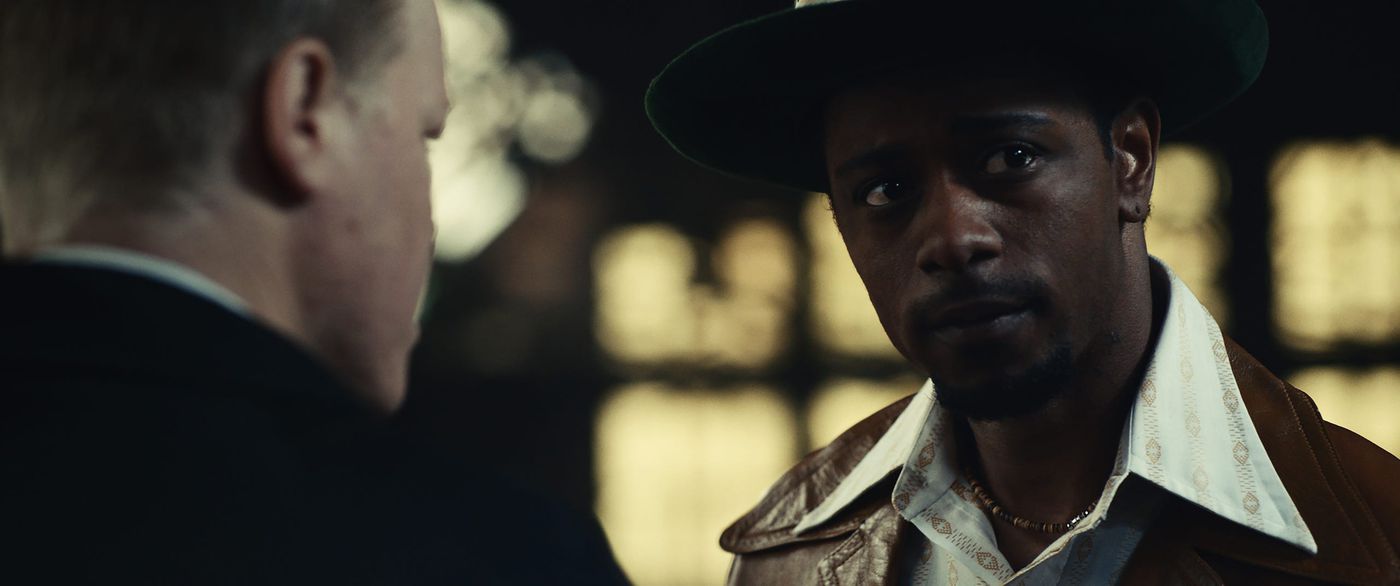
Throughout the movie, O’Neal’s contradicting spiritual turmoil is depicted splendidly as we see O’Neal rising through the ranks and eventually choke when his treason toward his own brothers and sisters eventually gets to him. The sense of paranoia increases tenfold as the FBI gets bolder with their requests, leading to him questioning his actions and waking from his freakish nightmares in cold sweat. Alas, it’s far too late for him to back out. The rodent had burrowed way too deep and there is no objective light in sight. The wayward wanderer, lost in the shadows of his own judgement, has nowhere to hide from his own demons.
Of course, the entire theme of loyalty and police brutality is further bolstered by the rest of the supporting cast. Jesse Plemons plays the devil, quite simply, as an FBI handler who gets O’Neal trapped within his vice-grip. He’s skewed, knowing full well that he’s the hand feeding the rodent, and he allows that to be his tether, pulling it ever so slightly to get to what he wants. On the other hand, Dominique Fishback’s poet helps provide some grounding for Hampton as the crusade goes on, bouncing off him with reason when appropriate.
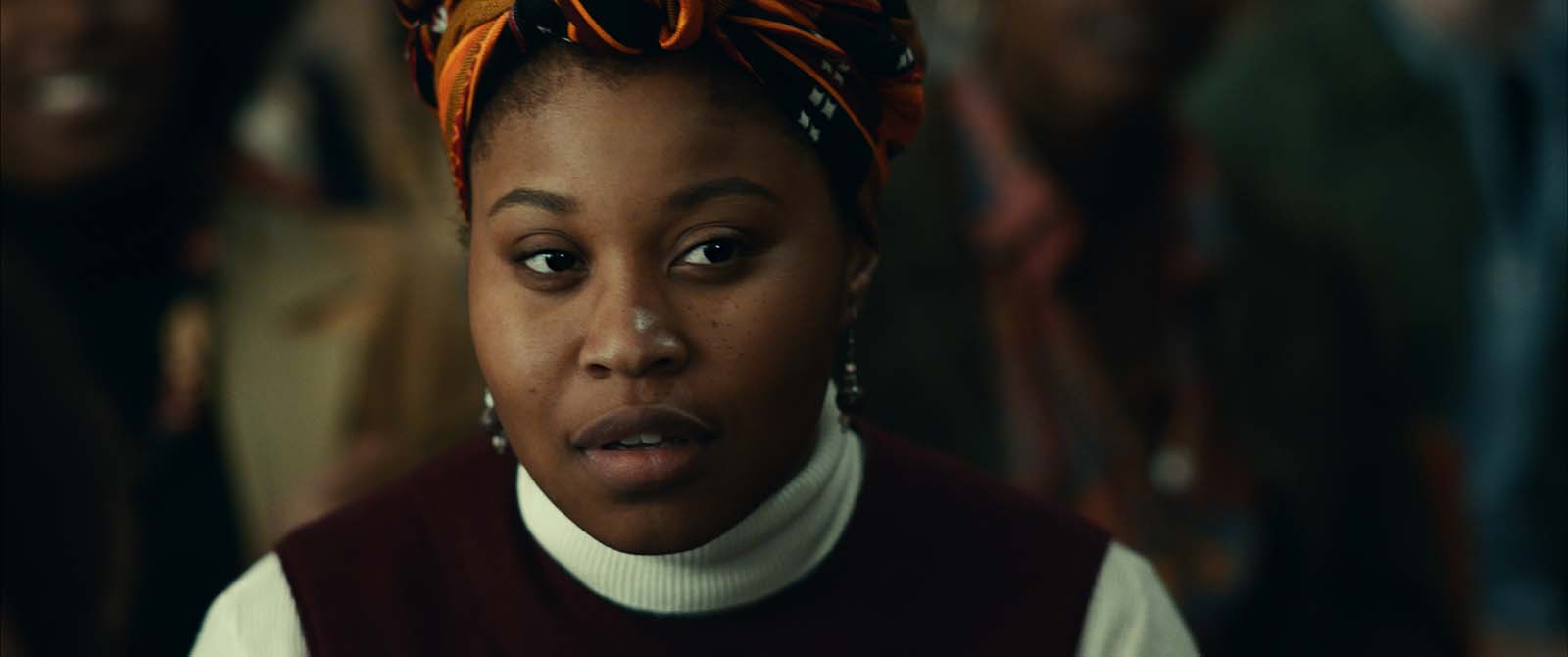
On a side note, we found that the subplots involving the FBI alone weren’t exactly the most desirable pieces of the whole narrative, as it did draw us out of the film whenever they came on. They weren’t entirely essential as Martin Sheen’s FBI director attempts to explain the entire situation to Jesse Plemons and create a bigger villain of himself when there is actually no need to. But… this is just a minor gripe.
No doubt, the film’s brutal setting also weaves into its poignant themes, with the bloodshed being committed a constant struggle within the characters. The ruthless cinematography closing up on the gunshot wounds and terrified Black Panther fighters moments before they are captured or eliminated make it a harrowing experience. Should vengeance be pursued in the event of an unjust killing? Should fire be fought with fire? “Judas and The Black Messiah” is indeed a bitter reminder of the injustices that occur in society, and the answer isn’t so straightforward. It’s just plain grey.
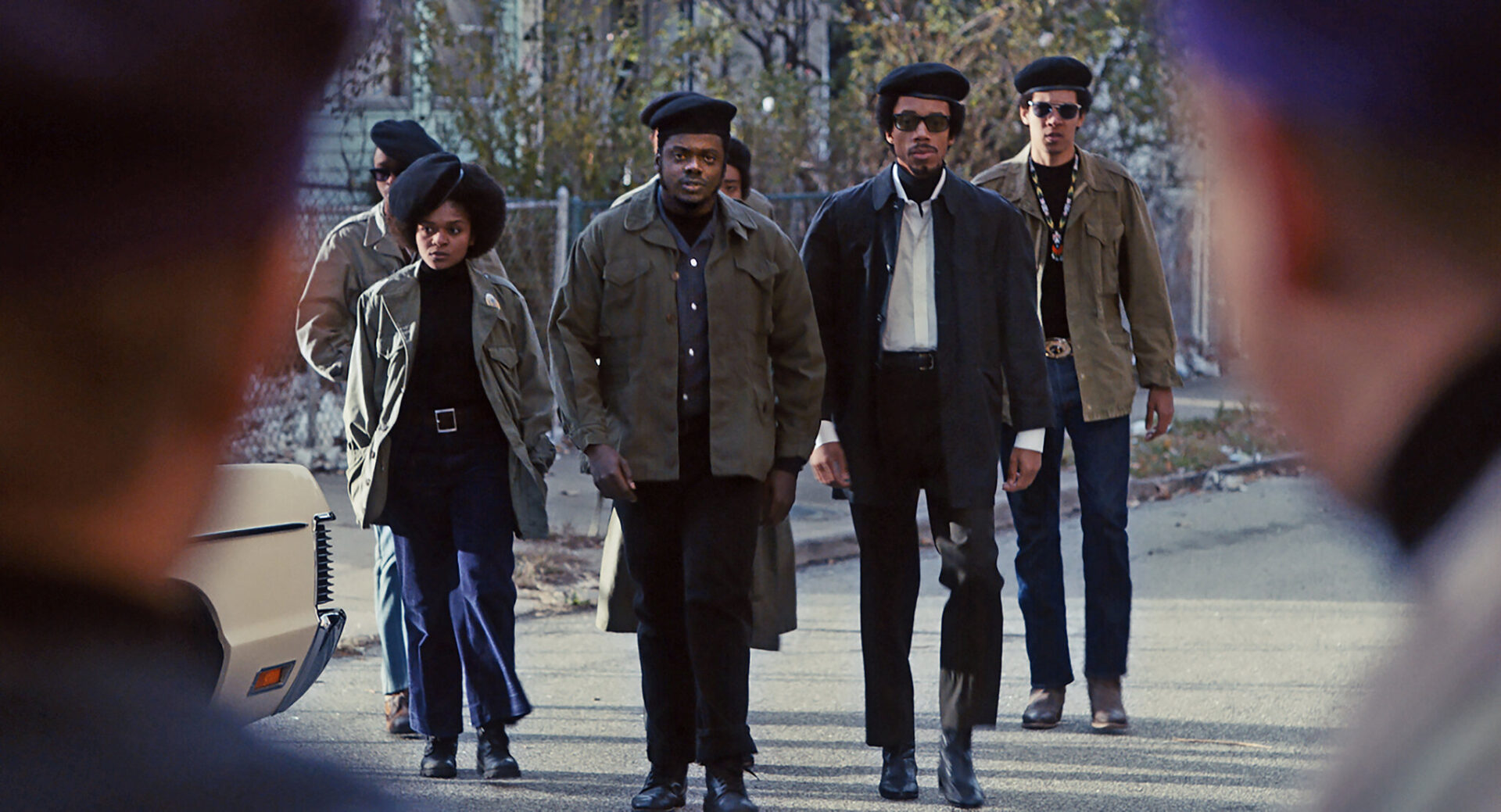
The political tragedy of the historical event depicted in “Judas and The Black Messiah ” continues to haunt the oppressed communities half a century later. Though times have changed, some aspects aren’t quite so different than back when it was 1969. Incidents as recent as last year have been eerie retellings of such episodes of the past.
Shaka King’s work here is indeed a bitter pill to swallow, but as frightening a tale as it is, it’s also significant as a work of art. The ideologies here are grey shades as Hampton and O’Neal butt heads on where the party should be directed to. And to top it all off, the duplicity of O’Neal’s treachery, the cherry of this entire operation helps make this film stand out. As O’Neal ultimately recounts his actions in the real-life interview, the knowledge that his dual-life led to the bloodshed of his brethren made him shake in sin. Betrayal can buy you thirty pieces of silver, but it’s the guilt that ultimately kills you. No Judas, you can’t win this one.

“Judas and The Black Messiah” is currently streaming on HBOMax. The film is rated R for violence and strong language.
Follow us on Instagram, Facebook or Telegram for more updates and breaking news.


